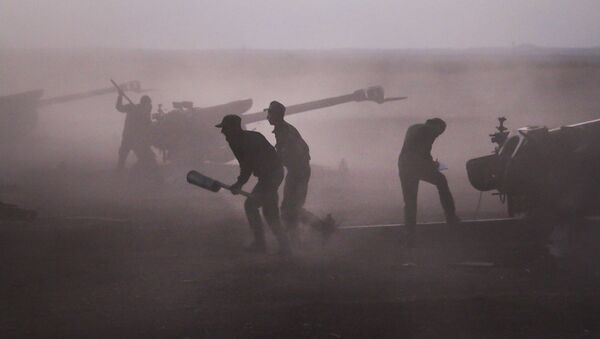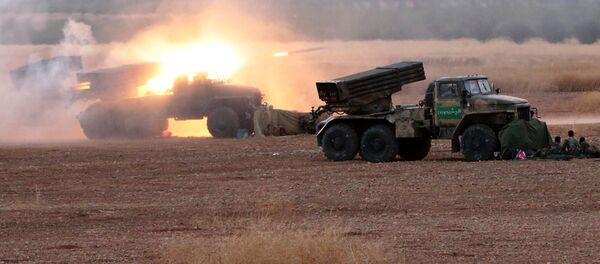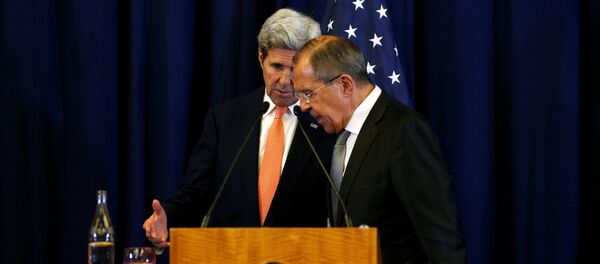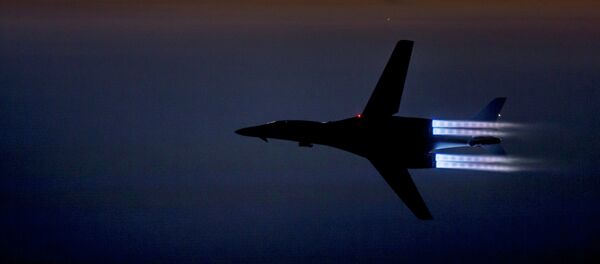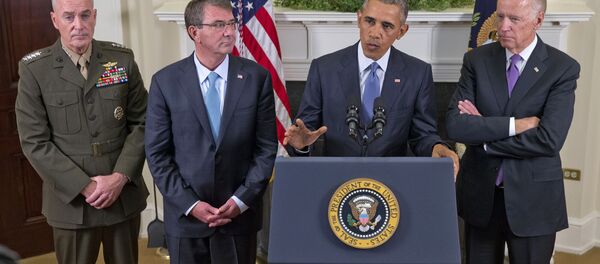According to Antoun Issa, a US-based Lebanese-Australian journalist, the Syrian ceasefire deal has been doomed to failure since the very outset.
"The collapse of the latest Syrian cease-fire is no surprise. Indeed, most observers had been pessimistic about the deal holding before it came into effect on September 12. Following the pattern of previous failed attempts to implement a cease-fire, the first week witnessed accusations and counter-accusations of violations from all sides, before eventually falling apart," Issa suggested in his article for The National Interest on Monday.
First, there is no enforcement mechanism to ensure that "belligerents" comply with the agreement.
"An effective cease-fire would include punitive measures against violators, and an effective enforcement mechanism in the form of joint international forces under a UN umbrella," he believes.
Second, the former al-Qaeda affiliate Jabhat Fatah al-Sham, also known as al-Nusra Front, and Daesh (ISIS/ISIL) have the capabilities to throw a wrench in the works. Since the ceasefire agreement is aimed at launching a joint US-Russian offensive against the terrorist groups in Syria, the al-Nusra Front "has every interest to derail any cease-fire deal that would ultimately target it."
To complicate matters further, Syrian rebels continue to coordinate with the al-Nusra Front on the ground. Given this, it is very hard to implement a sustainable truce.
Issa also claimed that Russia's effort to support Syrian President Bashar al-Assad would bear no fruit since "Assad cannot regain total control of the country."
Fourth, the Lebanese-Australian journalist claimed that the US and Russia are busy resolving their own geopolitical problems in Syria, leaving no space for the Syrian peace process to succeed.
At the same time, Tarasov reminded that Turkey and Iran are also involved in the Syrian conflict, along with Russia and the US.
"Without the participation of these two countries [Iran, Turkey] the format of the agreement has appeared to be invalid," he noted.
The Russian expert recalled that the Syrian ceasefire had been disrupted by the US' attack on the Syrian Arab Army's (SAA) positions near Deir ez-Zor with the assistance of British drones. However, the Western media sources continue to insist that it was the Monday assault against the UN humanitarian convoy that dealt a heavy blow to the US-Russia brokered agreement.
Interestingly enough, Washington admitted that it hit the SAA positions on Saturday, but called it an "accident."
According to Tarasov, the controversial situation could have been the result of a "third force" interfering in the Syrian peace process. He believes that the "third force" is the Pentagon, which stepped in to throw a wrench in the works of the US diplomatic corps.
"Despite the diplomatic battles [that continue to go on] in the UN Security Council, the US has not yet presented any credible evidence that the humanitarian convoy [near Aleppo] was attacked by Russian war planes and that the Syrian government forces were also involved in the assault," he emphasized, adding that in this light, the idea of a "third force" seems likely.
In any event, Obama's successor, whether it's Hillary Clinton or Donald Trump, would have to reconsider Washington's Syrian policy, the Russian expert underscored.
Still, the foreign powers' primary goal remains to separate Syrian moderate rebels and radical jihadi groups on the ground, he stressed. As of yet, the views of Russia and the US regarding what Syrian groups should be designated as terrorists in the country have not coincided much.
